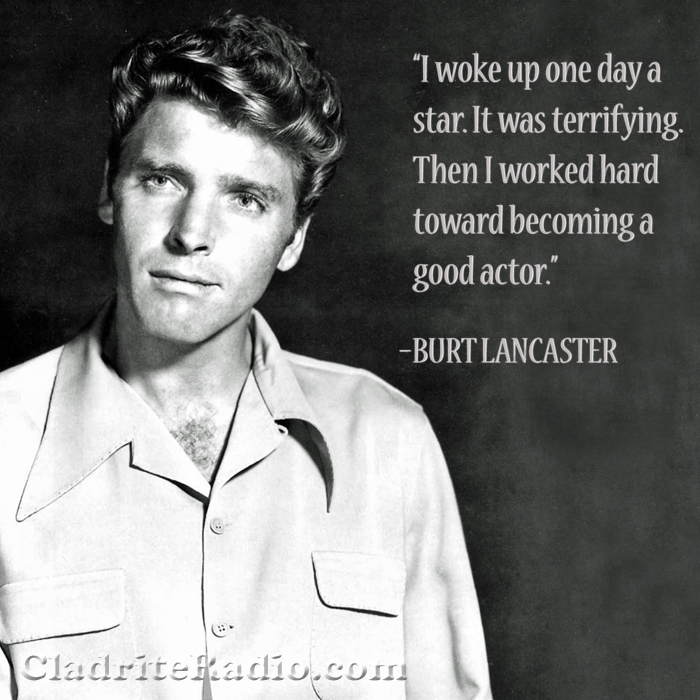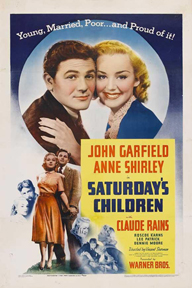Burt Lancaster was born 103 years ago today in Manhattan, New York, and rarely has a movie star taken his acting more seriously. Here are 10 BL Did-You-Knows:
- All four of Lancaster’s grandparents came to the United States from Northern Ireland. His father was a postal worker.
- As a kid, Lancaster was interested in gymnastics and he eventually joined the circus, where he remained until he sustained an injury. He graduated in 1930 from DeWitt Clinton High School in the Bronx.
- Lancaster was nominated four times for the Best Actor in a Leading Role Oscar, winning once, for Elmer Gantry (1960).
- After actor John Garfield turned down the role of Stanley Kowalski in the original Broadway production of A Streetcar Named Desire, it was offered to Lancaster, who also passed. It’s said that Lancaster, given the acclaim that came to Marlon Brando in that role, felt competitive thereafter with Brando and was inspired to become more adventurous in his own choice of projects.
- Lancaster, whose political views were liberal, flew back from Europe, where he was making a film, to take part in Martin Luther King‘s March on Washington for Jobs and Freedom on August 1963, where he was joined by other stars, among them Brando, Sammy Davis Jr., Charlton Heston, Judy Garland, Eartha Kitt, Harry Belafonte, Sidney Poitier and Paul Newman. Lancaster also contributed financially to Dr. King’s work and to the Southern Christian Leadership Conference.
- Lancaster always stipulated that a high bar be made available on set while he was making a film, so that he could exercise in between scenes.
- Lancaster’s son Bill Lancaster, screenwriter for The Bad News Bears (1976), based that script on his own Little League experiences playing for his father, who coached his team.
- Lancaster’s first television role was a 1969 guest appearance on Sesame Street.
- Lancaster’s was among the 575 names on Richard Nixon‘s infamous “enemies list.”
- Among the prominent roles Lancaster turned down were Moses in the 1959 remake of Ben-Hur (he was offered $1 million for the role) and Gen. George S. Patton in Patton (1970). A role he avidly pursued but was denied was Don Corleone in The Godfather (1972).
- Though they were closely associated in the minds of many fans, Lancaster and Kirk Douglas, who made seven films together between 1948 and 1986, did not enjoy a close relationship.
Happy birthday, Burt Lancaster, wherever you may be!


